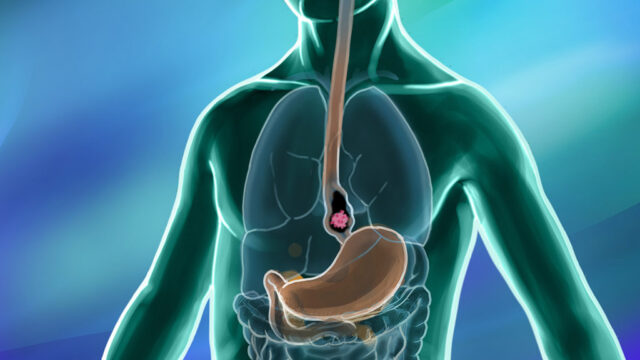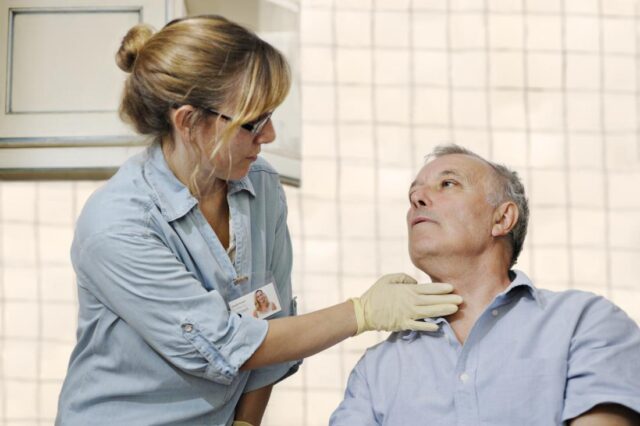
When you are a carer looking after people who have neurological impairments, you will, at some point, come across someone who has dysphagia.
This can be tricky to manage, and if it is left unchecked, it can cause a lot of secondary issues such as weight loss, lack of nutrition, and even extensive dehydration. So, it is well worth knowing about how to manage this issue as effectively as possible.
This short article will introduce you to what dysphagia is, its causes of it, and the management programs that surround it. So, read on to learn more!
What Is Dysphagia?

Dysphagia is simply when a person has an issue with eating and swallowing their food. It can present as pain in the chest, coughing, choking, or ever regurgitation. It is worth considering looking into foods and thickeners that are designed for people with dysphagia to get a better idea of the nutrition that those who have it require to thrive, so look into the SimplyThick company for more information.
Different Types of Dysphagia

There are 2 main groups that dysphagia falls into.
The first is oropharyngeal dysphagia, which is related to an issue with the mouth or the throat. This can cause that unpleasant feeling of food being stuck and may cause someone to cough up food.
The next most common type is esophageal dysphagia, which relates to an issue in the esophagus that can cause problems with swallowing. This may be a blockage, a breakdown of nerves, or even complete paralysis.
What Causes It?
What are some of the most common causes of dysphagia, especially in the older population?
Stroke
Having a stroke is likely to cause dysphagia.
This is because following a stroke the brain is going to be a bit jumbled, even temporarily, which will cause issues with all of the bodily functions. So, a person who has had a stroke may have issues chewing, swallowing, standing, or going to the toilet.
The severity of the stroke will impact how long the person has dysphagia and the steps that need to be taken to resolve it.
Dementia

Many people are surprised to learn that alongside the cognitive issues that come with dementia, physical issues can and often do appear too. For instance, dementia can also cause muscle wastage and weight loss, which can be unrelated to dysphagia.
But you may be wondering how dementia can cause dysphagia. The esophagus is a muscle, and, as mentioned before, Alzheimer’s and other types of dementia cause muscle wastage. So, as the disorder progresses, it may be harder for those who have dementia to swallow food. The steps that are taken in this case will depend on the severity of dementia and usually the level of cooperation and risk from the individual.
Head Injuries
During the initial stages of recovering from a traumatic brain injury, it can be hard for someone to swallow food on their own. In this instance, if the person is in the hospital, they will probably have a nasal tube inserted to help.
Depending on the complexity of the brain injury, it can be difficult to treat dysphagia, as there may be movement issues or cognitive issues.
Cancer

It is one of the most common features of esophageal cancer; difficulty swallowing food.
If you have esophageal cancer, it may feel as though food is stuck in your throat or that you simply cannot keep food down. This is likely due to a tumor in the throat. It’s also worth noting that some stomach cancers can cause dysphagia, too, especially when it comes to keeping food down.
If you or anyone you know is experiencing these symptoms, you should seek medical advice as soon as possible.
Gastroesophageal Reflux Disease (GERD)
Most people have had heartburn from time to time. But for those who have GERD, this is a disorder that causes chronic reflux. In itself, it can cause issues with sleep, persistent coughing, and a feeling of being full, even if you haven’t eaten. It usually requires proton-pump inhibitors to manage it correctly.
How does it cause dysphagia? It causes damage to the esophageal tissues around the stomach, which can lead to narrowing. This can create complications with esophagus scarring, leading to less mobility when moving food. If GERD is not managed, it can also cause nerve damage to the throat, which is also needed to help move food.
Treating The Dysphagia

Treatment and management of dysphagia is not a one-step solution for many people, and many adjustments may need to be made to alleviate the issues that are associated with the disorder.
For short-term treatment, a person may be required to change their dietary habits, which is also recommended for those who have the issue long-term. This will involve eliminating dry foods and rough foods, such as biscuits, dry cereals, and dry toast.
If the dysphagia is more severe, then a nasal tube may need to be inserted. This will allow liquid food to pass through the tube into the stomach and is ideal if there is an issue with the muscles in the throat. In more extreme cases that are predicted to last longer, a doctor will advise the fitting of a tube directly into the stomach through the skin. This is a preferred solution if there is permanent nerve damage to the esophagus.
It may also be advisable for those with dysphagia to attend appointments with a speech and language therapist, who can assist in the assessment of the severity of the dysphagia and recommend the best treatment going forward.
Complications
If left untreated, dysphagia can severely reduce the quality of life someone has.
Indeed, it has been linked to issues such as malnutrition, choking, dehydration, and even aspiration pneumonia. So, if you have any concerns about the risks that the person you are caring for has relating to dysphagia, then please seek the advice of a doctor.
If there are recurring issues with dysphagia, such as choking or malnutrition, then a feeding tube may need to be inserted in the short term.